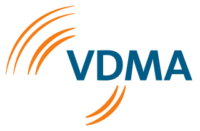Commissioner for the Internal Market, Thierry Breton, says: “Technical standards are of strategic importance. Europe’s technological sovereignty, ability to reduce dependencies and protection of EU values will rely on our ability to be a global standard-setter. With today’s Strategy, we are crystal-clear on our standardisation priorities and create the conditions for European standards to become global benchmarks. We take action to preserve the integrity of the European standardisation process, putting European SMEs and the European interest at the centre”. Standardisation Strategy
According to the Federal Ministry for Economic Affairs and Energy (Germany) Europe has to be a standard setter and not a standard taker to allow our societies to strive and prosper while sticking to our values.
“Standards are the silent foundation of the EU Single Market and global competitiveness. They help manufacturers ensure the interoperability of products and services, reduce costs, improve safety and foster innovation. Standards are an invisible but fundamental part of our daily life: from Wi-Fi frequencies, to connected toys or ski bindings, just to mention a few. Standards give confidence that a product or a service is fit for purpose, is safe and will not harm people or the environment. Compliance with harmonised standards guarantees that products are in line with EU law.
The fast pace of innovation, our green and digital ambitions and the implications of technological standards for our EU democratic values require an increasingly strategic approach to standardisation. The EU’s ambitions towards a climate neutral, resilient and circular economy cannot be delivered without European standards.”
Source https://ec.europa.eu/commission/presscorner/detail/en/ip_22_661
In the event “SBS ICT Forum 2022 – Digital Sovereignty: Towards a vibrant SME ecosystem” the question was discussed on how to engage SME’s in standardisation.
The organizers set the scope:
“Europe’s 2030 digital targets entail a set of specific objectives that aims to enable Europe’s digital transformation and leadership, while encapsulating European fundamental values. Subsequently, these targets are supported by a set of legislative acts such as the AI Act, the Digital Markets Act, the Digital Services Act, the Data Act, the Chips Act, the Cyber Resilience Act; and a revision of established legislation such as the NIS 2 Directive, the Radio Equipment Directive, the Machinery regulation, and the eIDAS regulation.”
Throughout the session the importance of standards were stressed, if only because 90% of the data is outside the EU, to build an effective standardisation strategy and export EU values into international al standards. SME is key to innovation active in developing solutions. SME and digital sovereignty goes hand in hand. Yet SME’s are not present at the standardisation table, they lack awareness, time, and resources. If they do not engage, there is the danger that the process is the interest of large companies.
Gwenole Cozigou, Director for Industrial Transformation and Advanced Value Chains (DG GROW), European Commission, talks about the political agenda of today is strategic autonomy. According to him standardisation is a bottom up exercise where exports work towards supporting policy. It is a key instrument to create open access to thirty markets with one solution. Technical sovereignty can be more easily reached if the EU takes the lead in standards. There are two new realities. The first is that standards are not only used by companies but also by countries as a political tool. The second is the lack of standards problem in may areas relevant to market and society, such as hydrogen. That is why a new role was created Chief Standardisation Officer (SCO) His role is to see to it that standards stem from EU principles such as no standards used for mass surveillance, third party sharing under control of citizens control and implementable easily by SME. SME need to be fully involved at three levels; in legislation SME and society should be present, in policy we need every actor, a full ecosystem and in finance where we need to find ne ways of channeling SMEs in the process. But logically they are constrained, they have little time and manpower. In France there are innovative ideas, and DG Grow is very much open for suggestions.
Digital sovereignty is a direction, far from an implementation. SME are an important part, large companies can not expect to go to sovereignty. For that we need to create fluidity and we need access to data, making more data available for SME. A speaker says that catalogues are needed – in a trust and transparency framework, you would need strong credentials in order to access.
EU Digital SME Alliance says that SME need support to participate, for SME the ability to find EU partners is key. Make a EU solution provide a full EU solution and then trust will follow.. The amount and value of data held in the realm of SME is unique. Standardising the lexicon, the labeling, portability means different things in different acts – is necessary.
As a small component producer in automotive how are you going to get data to test it before offering it to large players? A bidding system where drivers can decide where to sell their data is proposed.
Donato remarks in the chat
11:14 AM @EuropeanDigitalSmeAlliance Sure! Sustainable blockchains of 3rd generation (sustainable by design), will enable, starting with the ongoing EU SSI (Self-sovereign Identity), to create a EU DAO (Decentralised Autonomous Organization) where all the SMEs could join and democratically define the governance of Digital SME Alliance. Speaking about data, blockchains, because of their nature would solve several privacy, transparency and legal aspect discussed by the panel.
Read more here:





